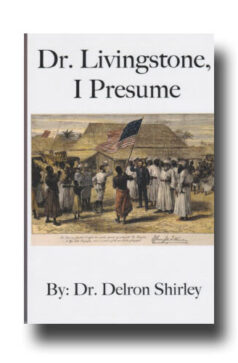A friend of mine had become very interested in the baptism in the Holy Spirit. During the weeks following, we had Bible study sessions together, and I tried to help her understand what the Holy Spirit baptism is and how to receive it. I was shocked – to say the least – when she came to me one day and said that she had decided to have nothing else to do with this subject “because tongues divide churches.” What was the problem? Somewhere she had encountered what might be called the “blabtism.” This experience had driven her away from the real baptism.
The dictionary defines “blab” as:
- to reveal indiscreetly and thoughtlessly
- to talk or chatter indiscreetly and thoughtlessly
- idle, indiscreet chattering
- a person who blabs
These definitions sound very much like the biblical description of speaking in tongues when not motivated by love and wisdom:
- a sounding brass or a tinkling cymbal (I Corinthians 13:1)
- making noise (I Corinthians 14:7-8)
- speaking to the air (I Corinthians 14:9)
The point here is not that we should stop speaking in tongues or that we should try to stop others from speaking (I Corinthians 14:39) since the Bible clearly states that it would be good if each Christian were a tongues speaker (I Corinthians 14:39); rather, the point is that the gifts must be ministered in love. Love does not behave itself unseemly (I Corinthians 13:5) and never fails (I Corinthians 13:8). However, without the ingredient of love, the gifts are likely to behave themselves unseemly and to fail. (I Corinthian 13:1) Without the ingredient of wisdom, they are likely to make others think that Spirit- filled people are crazy. (I Corinthians 14:23)
We must be very careful to avoid the obstacles that can become roadblocks that hinder us and others from receiving this all-important gift from the Lord. I have learned from many experiences that God is very eager for believers to receive the power of the Holy Spirit. He knows how important these gifts are and wants His children to have them. One young man, after talking with me, was so concerned that I was in error over this Holy Ghost doctrine that he went home to pray for me. Down on his knees, he began to intercede that I would find the truth and be released from error. The major problem he encountered was that he could not say the word “error” because his own language had been changed to unknown tongues by that point. Another friend of mine received the baptism in the Holy Spirit while driving down a steep and winding mountain road. He was so overjoyed with his experience that he threw his hands into the air and began to praise God in his new language. Only God could have gotten his car safely down that twisty mountain road! One of my favorite stories on this topic has to do with one of my close college friends who had been raised in a Pentecostal church and was very desirous to receive this spiritual baptism. In fact, it had been thirteen years that he had been praying for this blessing. One afternoon, a fellow student whom he was trying to lead to salvation confronted him with the question, “How do you know that it will really work?” His answer was, “You have to accept it by faith.” Just then, the Holy Spirit spoke to his heart, “Yes, and that’s how you have to receive my baptism – by faith.” The “better idea” light bulb suddenly flashed on inside his spirit, and he understood why he had been hindered for so many years. That evening, he released his faith and was inundated by the most spectacular flood of the Holy Spirit I have ever witnessed. For the next two days, he could not talk on the phone, answer a question in class, or order a meal in the campus cafeteria. He literally found it impossible to force himself to speak English. I guess it was all the praise that had been pent up inside him for more than a dozen years that suddenly came rushing out!
As we have already observed, the most important thing to remember about receiving the fullness of the Spirit is that Jesus said that it was as simple as asking our earthly fathers for the things that they naturally want to provide for their children. (Luke 11:11-13) In other words, we don’t have to beg or plead; we just expect that God is instantly ready to give us this great promise. Again, as we have already noticed, Paul called this confidence in asking “faith.” (Galatians 3:2) In essence, we don’t work to earn the gift; we simply expect that God wants to give it to us. We don’t have to be good enough; we simply have to be His children.
I have encountered many people who have had difficulty understanding this truth. Some have told me of their failures during their Christian life and concluded with the evaluation that they don’t deserve the gift since their lives have been less than perfect. My response is always that they deserve it more than those who haven’t had such failures because one of the works of the Holy Spirit is to sanctify us. (II Thessalonians 2:13, I Peter 1:2) Others have told me that they have waited for the perfect time when God was ready to give them the gift. My response to that is to point them to the passage we have already referred to in which Jesus compared our receiving the Holy Spirit to a father giving his son a piece of bread or a fish. I then say that if they are spiritually hungry, God is as ready to give them the Holy Spirit as an earthly father is to feed his physically hungry children. When one young Filipino man told me that he was waiting for God’s timing, I responded that God’s timing was in AD 33 and that meant that he was almost two thousand years late in receiving. At that, he instantly burst into tears and a beautiful prayer language began to flow out of him!
In my ministry all over the world, I have encountered many individuals who have had similar blockages in receiving the manifestation of the infilling of the Holy Spirit, and I observed that – almost without exception – they are struggling with one or more of these five problems:
- They are afraid that they might have a However, Luke 11:13 tells us that it is God who gives us the Holy Spirit. If ye then, being evil, know how to give good gifts unto your children: how much more shall your heavenly Father give the Holy Spirit to them that ask him?
- They are concerned that the words they speak might be something that they made up However, Acts 2:4 tells us that the words (utterance) come from the Holy Spirit. And they were all filled with the Holy Ghost, and began to speak…as the Spirit gave them utterance.
- They think that the Holy Spirit is going to physically take over their mouths and make them speak in However, we can turn to Acts 2:4 again to see that we have to cooperate with the Holy Spirit by actually speaking by moving our lips and giving voice to the words that are in our hearts. And they were all filled with the Holy Ghost, and began to speak with other tongues…
- They think that they have to be good enough or somehow earn the gift. However, Galatians 3:2 confirms that we receive the Holy Spirit by faith alone, not good works. This only would I learn of you, Received ye the Spirit by the works of the law, or by the hearing of faith?
- They think that the language will come out of their minds like speaking in our normal language does. However, John 7:38-39 records the words of Jesus in which He explained that it would come out of our belly (the spirit man) rather than out of our mind. He that believeth on me, as the scripture hath said, out of his belly shall flow rivers of living water. (But this spake he of the Spirit, which they that believe on him should receive: for the Holy Ghost was not yet given; because that Jesus was not yet ) A recent study done by the University of Pennsylvania found that frontal lobe activity which is associated with language and willful control of the body decreases during speaking in tongues. In other words, there really is a force other than the speaker who is motivating the speaking. Another interesting discovery in this study was the difference between the experience of glossolalia (speaking in tongues) and Buddhist and Catholic meditation. These other activities actually increased the frontal lobe brain activity, indicating the participants’ active involvement.
I have observed that even some who have desired, asked in faith, and had hands laid on them have failed to receive any manifestation of the infilling of the Holy Spirit. I believe that this is because they failed at the very last step – activation. In II Timothy 1:6 Paul told his spiritual son to stir up the gift that was in him from the time that the elders had laid hands on him. Likewise, we need to stir up the gift that came inside of us when we were prayed over by the church leaders. I believe that stirring up that gift can come at the initial infilling of the Spirit by allowing the Holy Spirit to give you a new language. Many people insist upon continuing to speak in their native language and expect the Holy Spirit to override their words. Others refuse to say anything and just wait for the Holy Spirit to make them begin to speak in tongues. On the Day of Pentecost, the apostles set the pattern when they did the speaking as the Holy Spirit gave them utterance.
In Luke 11:11-13, we find the very words of Jesus Himself, telling us that the gift of the Holy Spirit (including speaking with tongues) is a present that the Heavenly Father will willingly give to His children. In Mark 16:17, Jesus added that this gift was readily available to all who would believe. Notice that the promise wasn’t to pastors, elders, saints, or people in any specific time period; it was for all who would believe. In fact, Peter clarified the promise in Acts 2:39 by saying that it was for the people present, their children, and to all that are afar off – even as many as the Lord our God shall call. As we have already noted as we took our little tour through the book of Acts, there is a definite connection between receiving the infilling of the Holy Spirit and the supernatural manifestation of the gift of speaking in tongues. So why shouldn’t all the believers in Acts chapter twenty-nine (those of us who continue the story after the close of the New Testament) also receive this blessing?










